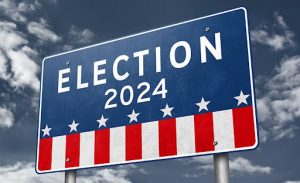Even though billion dollar tech companies are filing new mergers nearly every week, the chair of the Federal Trade Commission, Lina M. Khan, is trying to do something about it.
As more and more companies seek out mergers, regulators are desperately trying to reign them in to ensure consumer protection and robust competition in a market that is becoming increasingly monopolistic by the likes of Amazon, Google and Meta.
The FTC is an independent arm of the United States government that is tasked with the enforcement of civil antitrust laws, preventing unfair methods of competition and protecting consumers. To that end, the new chair has been trying very hard, but what is supposed to be a bipartisan organisation has fallen to infighting between the Republican and Democrat commissioners, who each hold two seats.
Also Read: Democrat lawmakers push FTC to regulate VPN providers
Khan in her capacity as the chair of the FTC has been doggedly hounding big tech and doesn’t look like she’ll be giving up very soon. Earlier this year in May, Amazon bought out Metro-Goldwyn-Mayer Studios, a media company that produces and distributes film and television programs, for $8.5 billion. The FTC launched an antitrust investigation into the acquisition. Just yesterday, Amazon announced that it was moving into the medical care space with its buyout of One Medical for $3.9 billion.
Similarly, the organisation is building an antitrust case against Meta, the social media behemoth that owns Facebook, Instagram and Oculus amongst many others. So far, the FTC has made little headway. But it isn’t just the larger, more visible acquisitions that are the problem, smaller acquisitions are equally problematic and slip through the cracks more often.
The consumer protection organisation, by its own admission in its 2021 review, found that of the 616 transactions valued at or above $1 million, 94 of them exceeded the size of the HSR transaction threshold (The Hart-Scott-Rodino Antitrust Improvements Act of 1976 sets the size of a transaction amount. If a company exceeds that threshold, then they must file with the FTC so that the organisation may ensure that the merger or acquisition does not disrupt U.S. commerce).
The same year, the Washington Post revealed that between January 2021 and September 2021, over 3,000 mergers and acquisitions occurred which received little to no attention from regulators or media houses.
While Khan might not last long in the FTC depending on how the midterms play out in November this year and which party continues to hold a majority in one or both of the houses, Congress has been pushing massive antitrust legislation through at a quick pace. Most significantly, the American Innovation and Choice Online Act would make tech companies across the country sever ties between their marketing tools from their tech aspects.






